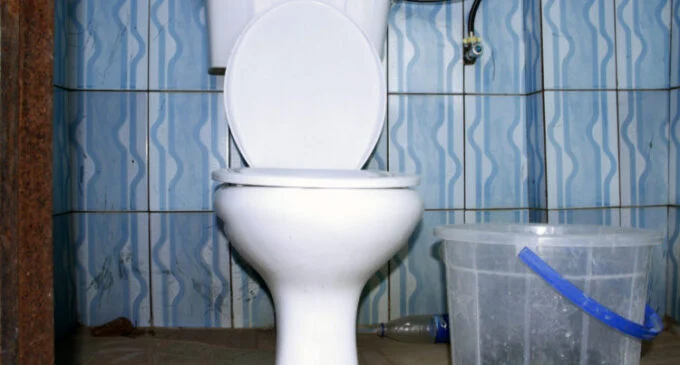If you are Nigerian, there is a high chance you are familiar with the term ‘toilet infection’. And if you are a Nigerian woman, you have probably worried about using a public toilet out of fear that you’ll go home with unwanted microbes in your genitalia.
The term ‘toilet infection’ has become very popular in Nigeria with many selling medicines and suggesting natural remedies promised to get rid of this infection contracted from the toilet.
An example of this is a social media user who, in a bid to advertise one of such products, narrated how she frequently suffered toilet infections because she had to share toilets with several people as a student.
“I am sure many ladies can relate to me. I kept taking antibiotics, but the symptoms kept reoccurring,” she wrote.
Now, even Captain America with his indestructible vibranium shield knows that in the battle against toilet-related anxieties like this, your weapon of choice would be the shield of facts.
So, let’s dive in.
DOES TOILET INFECTION EXIST?
Some symptoms typically described by people who claim to have a toilet infection include itching and abnormal vaginal discharge.
From TheCable’s search, it was found that health agencies attributed these symptoms to vaginal infections or sexually transmitted infections (STIs).
A vaginal infection, also known as vaginitis, refers to a few different conditions that can cause infection or inflammation of your vagina.
These infections are fairly common, with the American College of Obstetricians and Gynecologists saying up to a third of women will have a vaginal infection at some point in life.
Common symptoms of vaginal infection include vaginal itching and burning, vaginal soreness, inflamed, flushed, or swollen skin around your vagina and vulva, a change in the amount of vaginal discharge, a change in the colour of vaginal discharge, pain or burning during urination, pain during penetrative vaginal sex, and vaginal bleeding or spotting.
Examples of vaginal infections are bacterial vaginosis and yeast infection (also known as candidiasis).
These vaginal infections can be gotten without penetrative sex, or any form of sex for that matter.
Risk factors associated with these vaginal infections were identified as douching, bacterial overgrowth, antibiotics, stress, hormonal changes, and compromised immune system. TheCable did not find the use of a toilet identified as a cause.
Sexually transmitted infections (STI) like trichomonas, chlamydia, gonorrhoea, syphilis, genita herpes, and viral hepatitis B, on the other hand, are transmitted through sex.
While the majority of STIs have no symptoms, when symptoms do appear, they include abnormal vaginal discharge, genital ulcer and lower abdominal pain.
Speaking with TheCable, Fred Achem, an Abuja based consultant gynaecologist, said he has “never heard of” toilet infection as a diagnosis in his years of medical practice. He added that such phrases are simply imaginations aided by quacks.
“There are no bacteria in the toilet that will catch up with women or men who use it. We are encouraged to keep our toilets clean but not because the toilet can have bacteria, virus or fungus that can infect anyone,” he said.
“It is mostly women who have come to me complaining of toilet infection and the major culprit is usually candidiasis which is not gotten from the toilet seat. You will never find a textbook or scientific pathology referring to toilet infection.”
Similarly, Joseph Akinde, consultant obstetrician and gynaecologist at Living Spring Hospital, Lagos, told TheCable that “there is no such entity in medical science called toilet infection”, adding that is not true that this infection can be acquired from public toilets as claimed.
He said he has, however, observed that what most women refer to as toilet infection is vulvovaginal candidiasis which is a very common genital tract infection in women.
“It is very unlikely to contact an infection from a toilet if one considers the normal use of the toilet to either urinate or empty the bowels,” he said.
“The truth of the matter is that the offending organism is Candida albicans which is a saprophyte in the alimentary tract of humans and because of the proximity of the genital tract in the woman to the anal canal, this organism readily finds its way into the genital tract where it now causes symptoms such as discharge and itching,” he said.
“This is particularly so if the woman after using the toilet does not wipe her anus away from the genital tract. A number of women trying to cover up for their poor personal hygiene in that area would rather adduce the reason they have developed infection to the use of a dirty or public toilet. It is a fallacy that women develop infection after using a toilet.”
On if one can contract an STI or vaginal infection from a toilet used by an infected person, the gynaecologist said “conventional textbooks of medicine do not report the toilet as a method of getting an STI or vaginal infections”.
CONCLUSION
There is no available scientific evidence that toilet infection exists or that one can contract an infection from the toilet.





